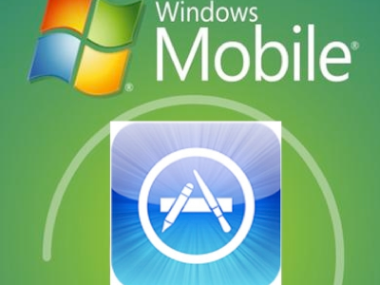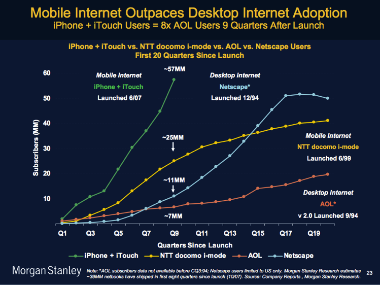 From the VP of marketing for the Limo Foundation:
From the VP of marketing for the Limo Foundation:
Growth within the siloed Apple ecosystem will actually stifle the grass-roots innovation
It’s interesting that this comment came on the day after Rob Glaser left Real Networks. Let’s take a stroll down memory lane of Glaser quotes:
(in 2003) “It’s absolutely clear now why five years from now, Apple will have 3 (percent) to 5 percent of the player market. … The history of the world is that hybridization yields better results.”
“Apple’s (market) share will go down if they continue to do this. The only way to presently put songs on an iPod is to (buy) them from iTunes.”
The (unforeseen) standard that emerged from the iPod is iTunes marketplace. It allowed Apple to establish itself as the premier and dominant merchant of all media including disruptive new media like apps. The iPod was “closed”, “siloed” and “locked-in” users. But it worked and grew and grew to the point where it set the standard.
The same arguments raised against the iPhone were raised against the iPod and Windows before it. Last I checked iPod had 70% share 9 years after the launch and Windows has 90% share 20 years after launch. iTunes sells more songs than any other retailer on the planet and more apps that anyone imagined possible.
Perhaps this data bears repeating:
- 140,000 apps – made by over 28,000 developers
- Users downloaded an average of 3.7 apps each in December.
- One Quarter of apps downloaded are paid. Average cost of $2.59/app.
- Each iPhone user spends an average of $10/mo.
- There are over 75 (est.) million active users
- 200 million apps are being downloaded every month
- $500 million in revenues each month. 70% to developers or $385 million
All these numbers are increasing and accelerating. iPhone Platform Fastest Ecosystem Ramp in History.


